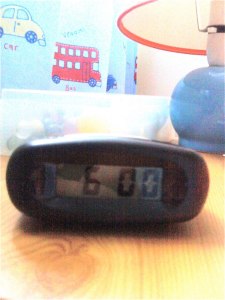by Danette
It is often said that people with autism lack empathy, but I think that is not necessarily always the case. I think it’s not always recognized becomes sometimes the way they express it may be a little out of the ordinary. And yes, sometimes I think a lack of understanding of nonverbal cues can lead a person with autism to not always recognize when someone is upset (therefore they may not respond with empathy, not because they aren’t capable of feeling empathy, but because they don’t recognize a situation where it might be warranted).
When my twins were younger, they didn’t understand what facial expressions or things like crying meant. Obviously they cried, but they didn’t recognize crying as a sign of sadness or distress in others, so they wouldn’t respond “appropriately” to someone crying. We had to teach them to recognize and interpret facial expressions that meant happy, sad, scared, angry, etc. Once they learned to recognize those cues, they began to respond accordingly, which leads me to believe that it is more of a communication issue than truly lacking empathy.
So, I thought I’d share just a few examples of times when my sons have shown empathy. I recently posted about BH singing to LB to try to calm him down, and about both CB and BH being there for Little Bitty when he needed some help. Here are a couple of other examples — just a few out of many:
Last year, when BH’s teacher missed a few days of school to care for her mother, who was ill, she told me that he was the only one in the class who asked her how her mom was when she returned. He didn’t ask because he thought she expected him to (he just doesn’t think like that); he asked because he was genuinely worried about his teacher and her mom.
When BH and CB were 4 yrs old, BH was having a rough morning one day, because he wanted to stay home and play with his trains instead of going to school. So, he threw a fit about everything, from having to come downstairs, to getting his shoes on, to walking out the door, to getting in the car. Then, he went ballistic when I didn’t turn at the “shortcut” he wanted to take. (It goes by another school, so there was too much traffic that way.) So, after he’d been crying for a few minutes, CB turned to him and said happily “It’s October, [BH]!” He got no response, so then he said “Peekaboo!” BH got mad at him, and I told him CB was just trying to be nice. Then CB said “I have a great idea to cheer him up!” and started saying random things like “What about hearts? Does that make you happy?” He was so sweet. And it worked. BH calmed down and then wanted to play peekaboo with him. By the time we got to school, he was in a good mood.
Even Little Bitty, whose communication skills are significantly delayed, has demonstrated his ability to empathize with others by offering his sippy to me or dh when he seemed to think we were tired or thirsty. Not that we were really interested in having his slobberful sippy cup shoved into our mouths, but hey, it’s the thought that counts, right?
About the Author: Danette is the mother of three boys on the autism spectrum: Little Bitty, Bearhug, and Cuddlebug. Little Bitty has a diagnosis of moderate autism; Bearhug and Cuddlebug share a diagnosis of high-functioning autism. This piece originally appeared on her blog, Everyday Adventures, and is reprinted here by permission.



You must be logged in to post a comment.